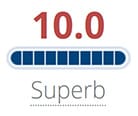Depression after a brain injury: What TBI victims need to know
Brain injury victims should watch out for the signs and symptoms of depression to ensure they are able to receive proper medical care for this illness.
After incurring a traumatic brain injury, victims in Illinois may experience a wide range of different consequences. While some effects may render victims unable to work, others may require extensive and painful rehabilitative care for the rest of their life. Although the Brain Injury Association of America states that every brain injury is different, many of those who sustain a TBI also experience depression.
What makes depression more likely after a TBI?
According to CNN, a study published in the Journal of the American Medical Association revealed that more than half of people who incur a TBI will become depressed in the year following the injury. However, the U.S. Department of Health & Human Services states that researchers are unable to determine if factors like the type of injury, the area of the brain that was injured, gender or age contribute to this increased risk.
How quickly does this illness develop?
Additionally, the DHHS states that researchers do not know when it is most likely for TBI victims to develop this mental illness after an accident. While some experience the signs and symptoms of depression soon after the accident occurs, others may not develop this mental illness for up to a year after the initial trauma.
What are the symptoms of depression?
There are many different ways that brain injury victims can tell if they are depressed and they include some of the following:
- Feelings of sadness, hopelessness and depression persist throughout most of their day
- Loss of interest in previously enjoyed activities, such as spending time with friends, occurs
- Changes in sleeping and eating habits, like eating more or sleeping less often than usual, arise
- An increased reliance on alcohol, tobacco and other controlled substances occurs
While many of the emotional and physical hardships TBI victims experience are easily recognizable, this is not always true for depression. Those dealing with a brain injury who believe they may be depressed should consider asking their close friends and family members if they have noticed any of these symptoms.
How is this mental illness treated?
According to the DHHS, depression is usually treated with medication or with psychotherapy. However, in some situations, a combination of both may be beneficial. Although researchers are unsure of how these methods of treatment specifically benefit TBI victims, both medications and psychotherapy have been proven to be effective for those dealing with the effects of depression.
Seeking compensation
After an accident, TBI victims may be able to obtain compensation to recover the cost of medical care for their physical and mental injuries, rehabilitation expenses and the pain and suffering they experienced due to the effects of the injury. If you incurred a brain injury because of another person’s negligence, speak with an attorney to find out what compensation may be available to you.
Keywords: traumatic brain injury, depression













